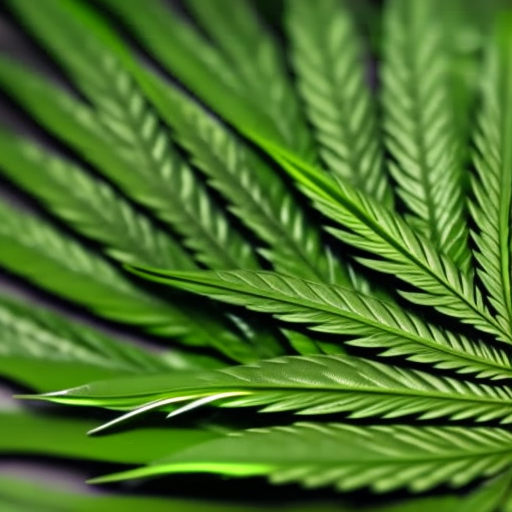
The intricate interplay between cannabinoids, particularly tetrahydrocannabinol (THC) and cannabidiol (CBD), has long captivated researchers and clinicians alike. A recent study published in *Clinical Pharmacology and Therapeutics* has brought to light an unexpected finding regarding the combined effects of these cannabinoids: rather than attenuating the psychoactive effects of THC, high doses of CBD may actually potentiate them. This revelation challenges prevailing assumptions in both medical literature and the broader cannabis community regarding the therapeutic applications of CBD.
The study, conducted by a multidisciplinary research team from the Netherlands and the United States, employed a randomized, double-blind, placebo-controlled design involving 37 healthy participants. The core hypothesis posited that CBD, at varying doses, would mitigate the adverse psychotropic effects associated with THC consumption, potentially rendering THC more tolerable for patients suffering from chronic pain. However, the findings revealed a significant deviation from this hypothesis; the administration of a high dose of CBD (450 mg) alongside a lower dose of THC (9 mg) did not result in a reduction of THC’s psychoactive effects but rather corresponded with a marked enhancement of subjective, psychomotor, cognitive, and autonomic responses to THC.
This pivotal study elucidates that lower doses of CBD (i.e., 10 mg and 30 mg) did not exhibit the same effect, pointing toward a dose-dependent interaction between these cannabinoids. The authors emphasize, “This study found no evidence of CBD reducing adverse THC effects. On the contrary, THC effects were significantly increased by 450 mg of CBD.” Such findings warrant a reevaluation of the pharmacological roles of CBD, particularly its modulating influence on THC metabolism. The increase in THC effects can be attributed to CBD’s inhibition of cytochrome P450 enzymes in the liver, which are crucial for the metabolism of THC, thereby prolonging its presence and effect in the system.
Geert van Groeneveld, a prominent figure in the study and professor at Leiden University Medical Center, underscores the implications of this research, stating, “CBD does not in any way alleviate psychomimetic effects of THC or reduce anxiety. If anything, in higher dose levels, it will enhance the effects of THC.” This assertion not only contradicts popular belief but also introduces a new narrative concerning the therapeutic use of cannabinoids, highlighting the potential for drug interactions even at seemingly benign doses.
The interplay between cannabinoids is further complicated by the concept of the “entourage effect,” a hypothesis suggesting that the therapeutic benefits of cannabis are amplified when multiple cannabinoids and terpenes are present in conjunction. Prior studies have indicated that cannabis formulations containing a broader spectrum of cannabinoids tend to elicit a more prolonged and potent psychoactive experience compared to pure THC. The recent findings bolster this notion, suggesting that the complex interactions among phytocannabinoids might shape not only the subjective experience of users but also therapeutic outcomes.
While the current study underscores CBD’s potential to amplify THC effects, it also prompts inquiries into the role of other cannabis-derived compounds, such as terpenes. For instance, a separate study published earlier this year examined the anxiolytic properties of the terpene D-limonene, finding it capable of alleviating anxiety and paranoia induced by THC. However, its impact on other subjective effects remained minimal, indicating that the pharmacological landscape of cannabis is multifaceted and requires nuanced exploration.
The implications of these findings extend beyond recreational use and into clinical applications. For chronic pain patients who may rely on THC for analgesia, the observed enhancement of THC effects by CBD could complicate therapeutic regimens. Clinicians must carefully consider dosage and formulation when recommending cannabinoid therapies. Moreover, as our understanding of cannabinoid pharmacodynamics evolves, the need for comprehensive guidelines and research on cannabinoid interactions becomes increasingly essential.
In conclusion, the recent study elucidates a significant paradigm shift in cannabinoid research, challenging long-held beliefs regarding the interplay between THC and CBD. As investigations into the pharmacological properties of cannabinoids continue to unfold, it is imperative that both the scientific community and medical practitioners remain open to reevaluating established assumptions. This evolving understanding holds the potential not only to enhance therapeutic practices but also to inform public policy surrounding the medical use of cannabis, ultimately benefiting patients who seek relief through these complex, naturally occurring compounds.

